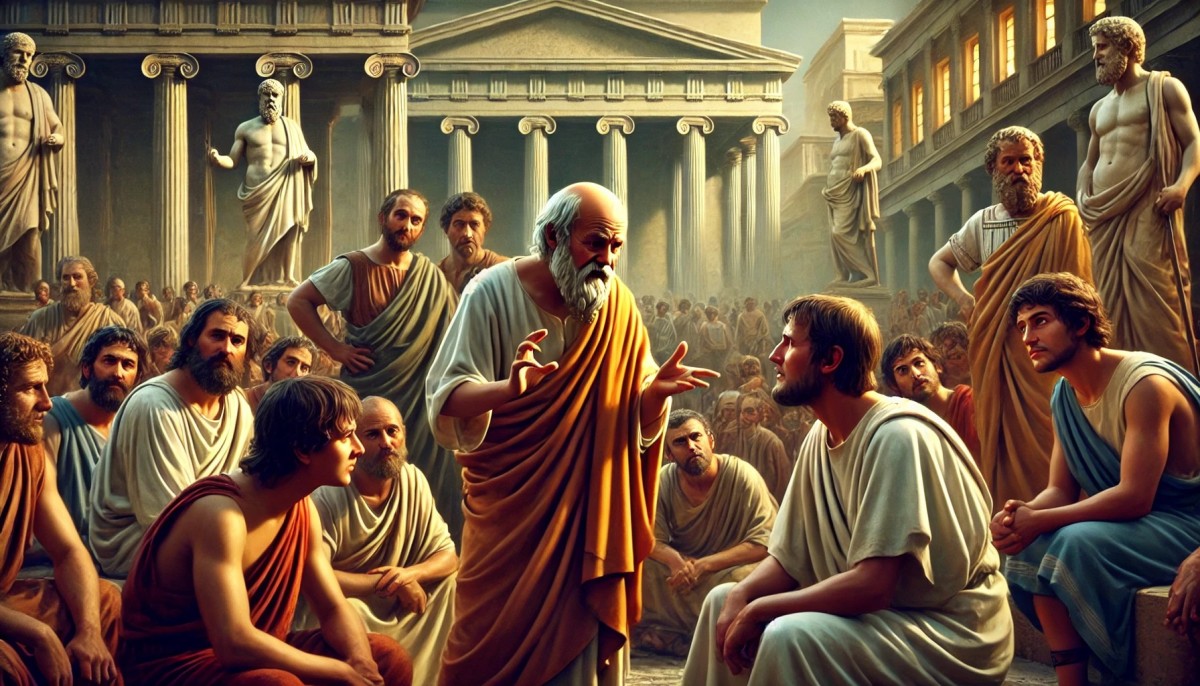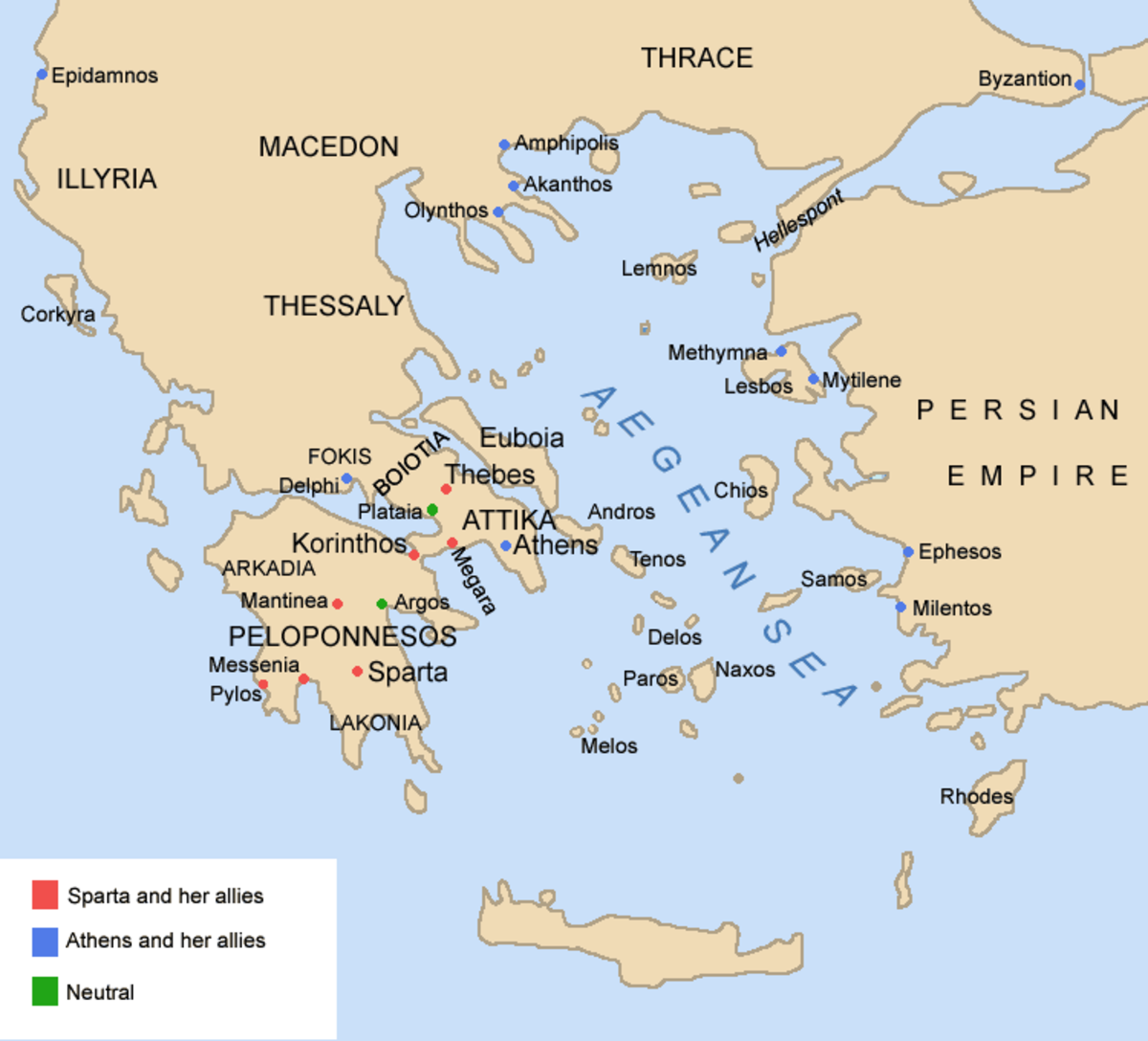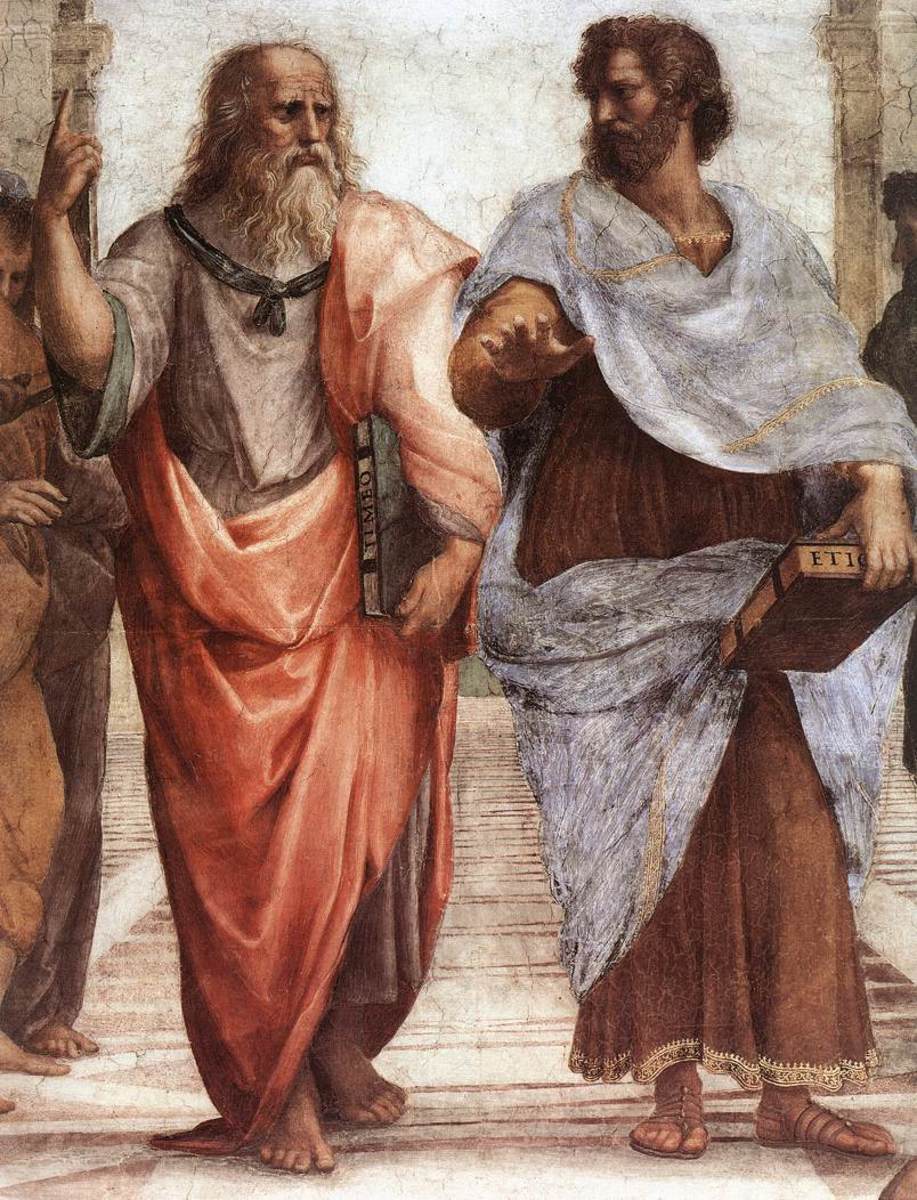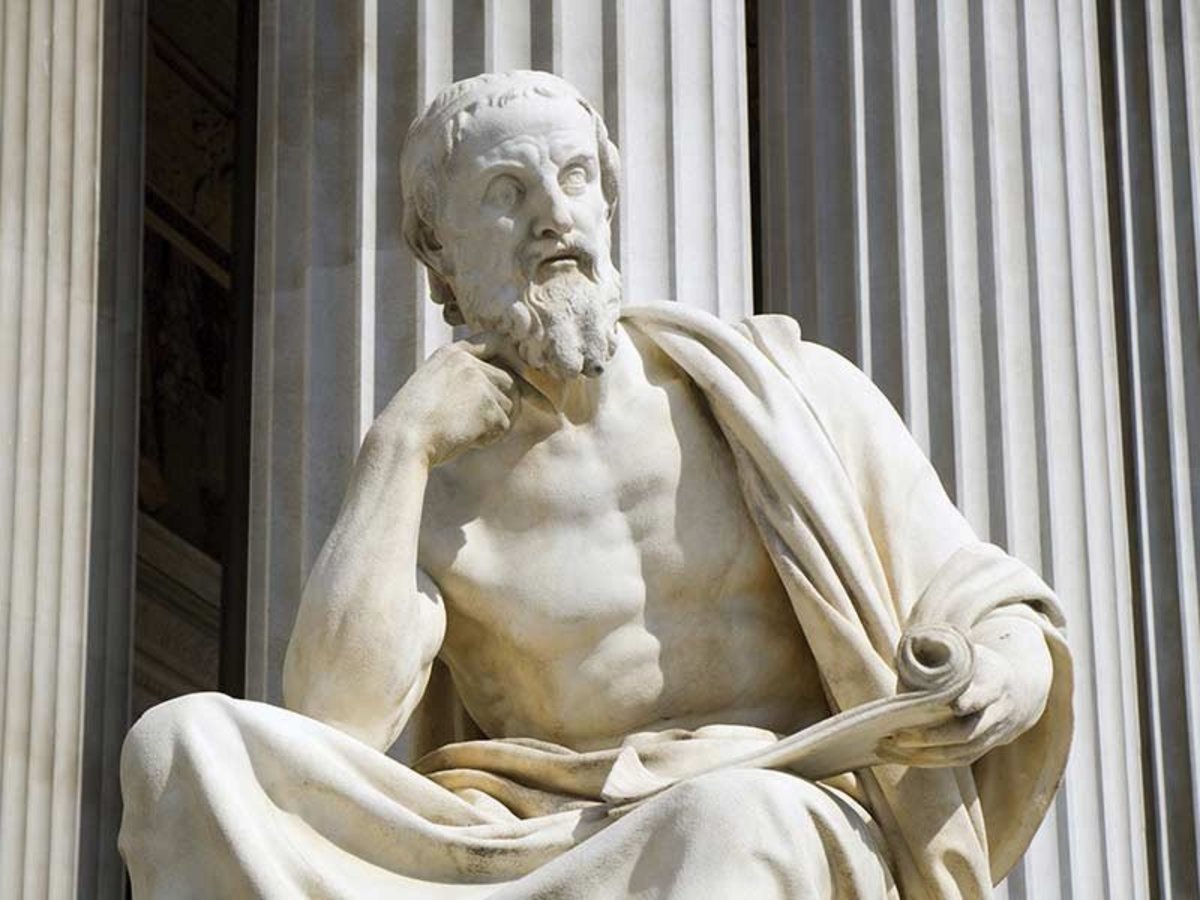The Contrasting Fates of Socrates and the Island of Melos
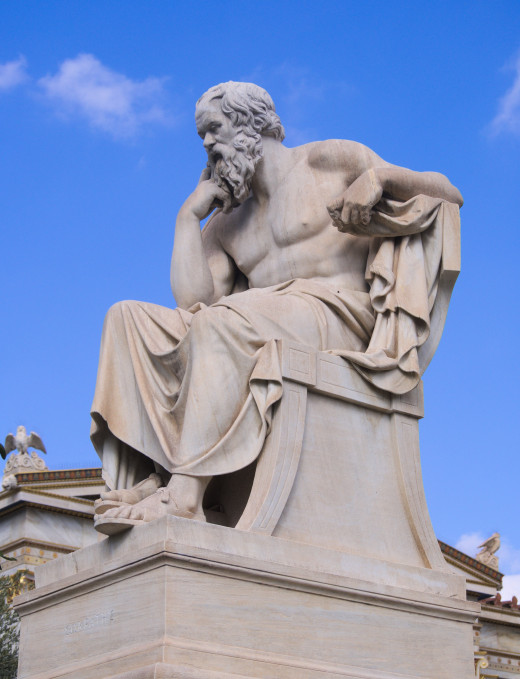
In Plato's Apology, the trial of Socrates is laid out through the speeches of the prosecution, Meletus and of the defense, Socrates himself. In the course of the dialogue, Socrates is charged and ultimately convicted of impiety, the punishment being death by a jury of 501 citizens of Athens. Thus, his death can be expressed as being delivered by the hands of Athenian democracy, or otherwise seen as the many. This contrasts greatly with the fate of the Island of Melos. In Thucydides' The Peloponnesian War, the Athenians invading the Island of Melos and completely decimating the Melian society is chronicled. This action, decided by the Athenian generals Cleomedes and Tisias, was due to the uncooperative nature of the Melians in joining the Athenian Empire, which the Athenians demanded in order to display their power to the other island states in the region. The fates of these two parties, Socrates and the Island of Melos, are dissimilar in several respects, one being the difference in the size of the determining bodies, another being the available options for them to escape their fates, and finally their expectation of outside help in avoiding their fates. These points will disprove the argument that either of these fates resemble each other in any respect, aside from the tragedy of both situations.
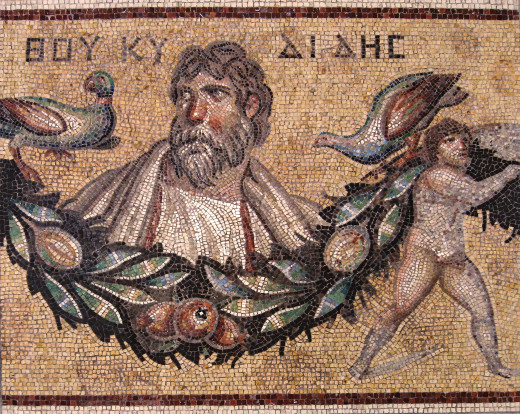
Choice of Fate
Socrates lacks any options in order to escape his fate. Though he does produce a compelling argument against the charges put against him, such as corrupting the youth and making the weaker argument stronger, a charge of impiety in Athens is not easily escape-able. Not two lines before the jury hands down a guilty verdict, Socrates even makes the claim that “I do believe in them [the gods] as none of my accusers do.”(Plato, Apology, p.39). A guilty verdict was inevitable with a charge of impiety, and thus death being the only suitable punishment for such a severe charge, regardless of what Socrates proposed as a counter punishment, he would be put to death. Now, Socrates did have the option of escaping from prison in the Crito, however this was after his death had already been decreed by the city and he was staring his fate in the face. This is another matter entirely, the point being that he had no option of escape during his trial, and that their was no chance of a not guilty verdict.
The Melians, on the other hand, were presented options by the Athenians. They had the ability from the start to escape their fate when the Athenians had gave them the choice to join their empire or be destroyed. The Melians, however, were unwilling to surrender, being “not prepared to give up in a short moment the liberty which our city has enjoyed from its foundation for 700 years”(Thucydides, The Peloponnesian War, p.407). The Athenians, being of superior military force, provide a perfectly logical argument as to why they should surrender, being “You, by giving in, would save yourselves from disaster; we, by not destroying you, would be able to profit from you.”(Thucydides, The Peloponnesian War, p.402). But the Melians still refuse to give in, and thus seal their fate. Again we see a difference of fate between Socrates and Melos. Socrates had no alternatives, though would have been content with any outcome, while Melos could have avoided their fate, but unfortunately they thought they would avoid it anyway and thus decided to forgo their alternative route.
Acceptance of Fate
Socrates had many friends in the city of Athens, many of whom could not think of anything worse than losing their close and dear friend. The entire premise of the Crito is Socrates friend Crito has arranged for Socrates to escape and continue living out his life elsewhere. However, Crito has done this without consulting Socrates first. Crito makes the argument that “I do not think that what you are doing is just, to give up your life when you can save it, and to hasten your fate as your enemies would hasten it...”(Plato, Crito, p.48), and that the just thing to do wold be to escape because the opportunity was presented. But Socrates disagrees, he believes that the just thing to do would be to stay and face the fate that was put down by the city, as he has a “just agreement” with it (Plato, Crito, p.53). Ultimately, they determine that even though help has been provided to him, the right thing for Socrates to do is face the fate placed before him. The Melians would have seen this differently. The Athenians gave them the option to escape their fate, but the Melians, knowing they could not defend themselves against the Athenian army “trust in the fortune of the that the gods will send and which has us up to now, and in the help of men – that is, of the Spartans” (Thucydides, The Peloponnesian War, p.407), in order to feel safe in refusing surrender. This notion that the gods were going to favor them seems slightly selfish considering every city, including the Athenians, thought the same thing (Thucydides, The Peloponnesian War, p.404). As for the help coming from the Spartans, the Melians simply assumed that they would receive aid from them, though there was no precedent for this, the Spartans were not even a part of the war yet. The Melians were relying on outside assistance to avoid their fate, though there was none to speak of, quite the opposite of the fate of Socrates.
The fates of both Socrates and Melos were great tragedies, but tragedies that differed greatly. The fate of Socrates was favored by the majority and was a concrete decision, no way out of it. In contrast, the Island of Melos' fate was decided by the few and the decision was more loose, with a legitimate way to avoid the fate. Whether one fate is more just than the other is not what the argument presented here was set on determining, but rather to distinguish the two fates as having little in common and thus not appropriate to compare to each other on any issue of justice or fate.
Judge and Jury
The size of the determining bodies in the fates of Socrates and Melos illustrate a distinct point in regards to the dissimilarities in the two events. Socrates, one man, was placed before a panel of his peers to determine his outcome in a matter of the city. There is no reason to believe that Socrates is dissatisfied with this set up, in fact he is pleased by the closeness of the decision when he states that “I think myself that I have been cleared of Meletus' charges”(Plato, Apology, p.39) when he learns that there was a difference of only thirty votes in the decision. He also feels that this is a “just agreement”(Plato, Crito, p.53) that he has made with the city, to face the decision that was made by the jury, who represents the laws and interests of the city of Athens. His fate was appropriate in his eyes because it was the will of many. This is in stark contrast to the fate of Melos. After the Melians gave their final answer, the “Athenian generals, finding that the Melians would not submit, immediately commenced hostilities...”(Thucydides, The Peloponnesian War, p.407). These generals were Cleomedes and Tisias, two men deciding the fate of the entire Melian society. They did not consult the democracy of Athens before making the decision, but “immediately” decided to begin the attack that ultimately wiped Melos from the map. The justice of this act may be debated, but for the sake of this argument, it must be shown that the fates of Socrates and Melos in this respect were radically different. Socrates was put to death by a jury of 501, and thus the entire city of Athens, versus the entire Island of Melos put to death by two Athenian generals.
This content is accurate and true to the best of the author’s knowledge and is not meant to substitute for formal and individualized advice from a qualified professional.

